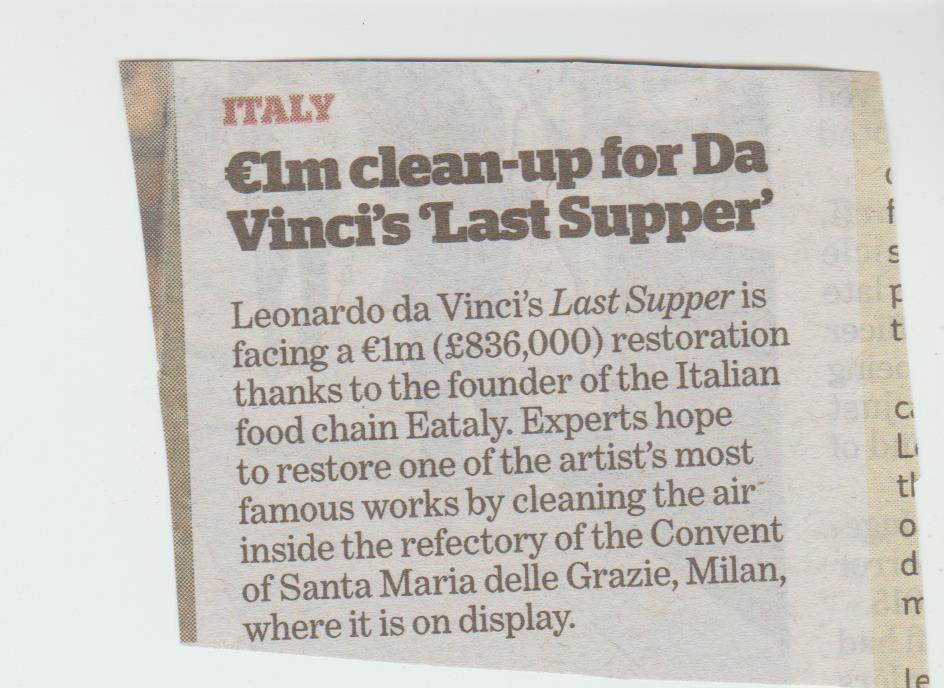 i newspaper, April 22, 2017
i newspaper, April 22, 2017
(53 words)
When I read this I wondered how ‘cleaning the air’ could ‘restore’ a painting, so I looked it up. It is not being ‘restored’, it is being preserved.
‘Facing’ has a suggestion of something bad about to happen, as in ‘Prisoner faces execution’, so it is not appropriate here.
The painter’s name is Leonardo; da Vinci means ‘from Vinci’ so you don’t cap it (The Da Vinci Code notwithstanding) and you refer to Leonardo in second and subsequent references.
This is how I would tackle it:
The Italian restaurant chain Eataly is hoping to preserve Leonardo da Vinci’s The Last Supper by installing an £800,000 air conditioning system in the refectory of the Convent of Santa Maria delle Grazia in Milan, where the late 15th century mural is on display. This should stop microscopic particles of paint flaking off. (51 words)
This adds the date of the painting, the fact that it is a mural, and how the rescue attempt will work. I don’t think you need to give the sum of money in euros, and you certainly don’t need the phrase ‘one of the artist’s most famous works’.
For the heading I would do:
Restaurant chain to
save The Last Supper
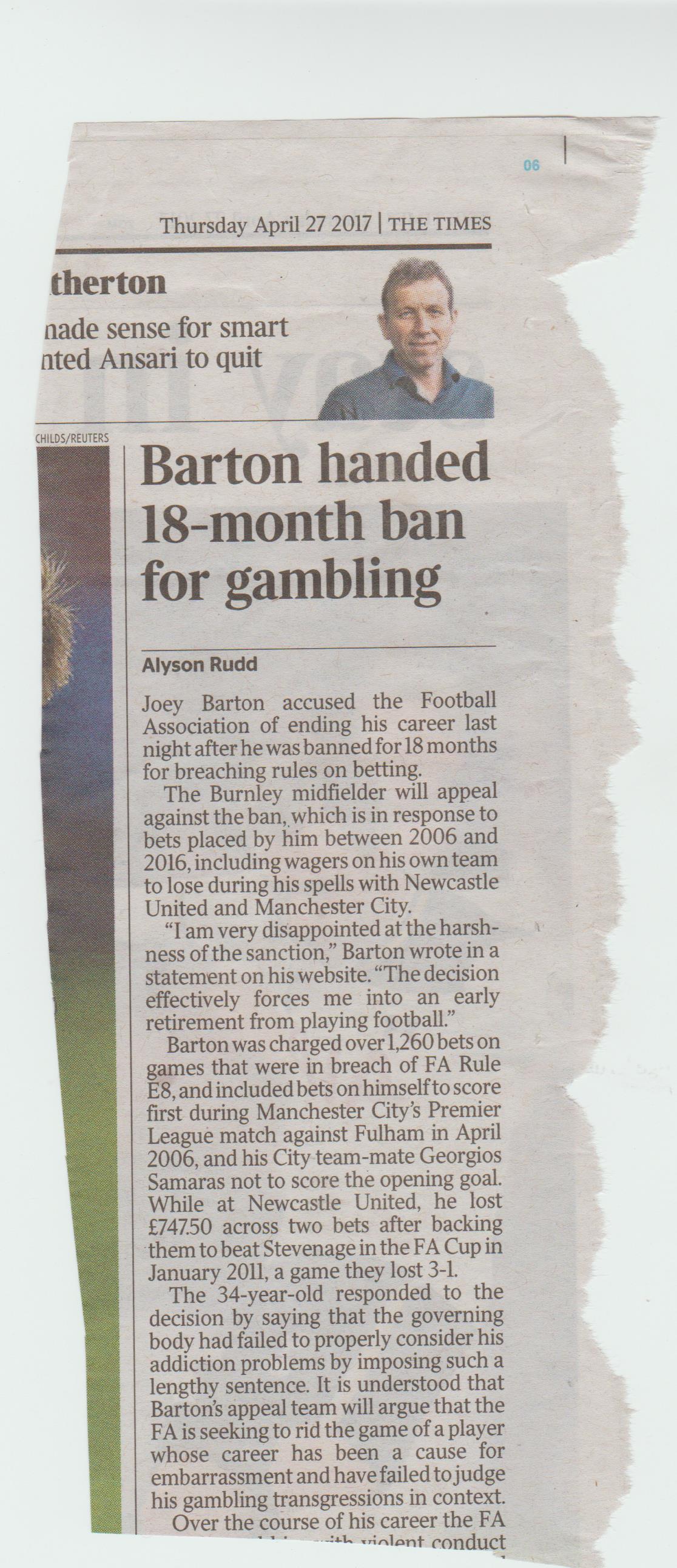 The Times, April 27, 2017
The Times, April 27, 2017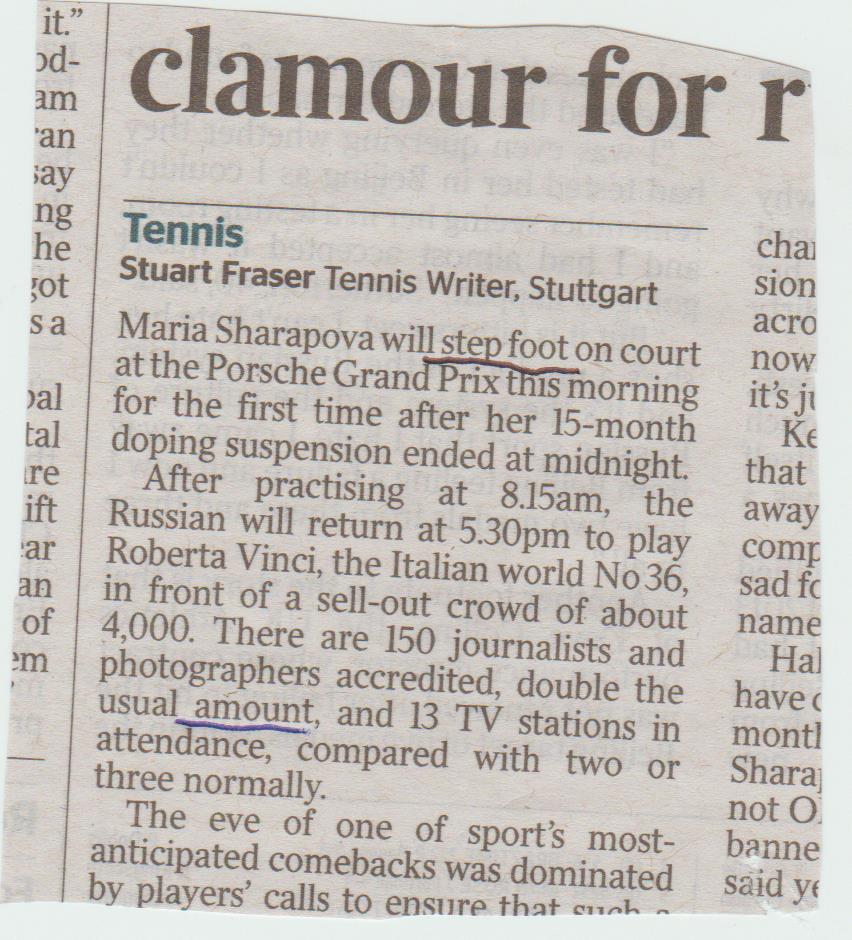 The Times, April 26, 2017
The Times, April 26, 2017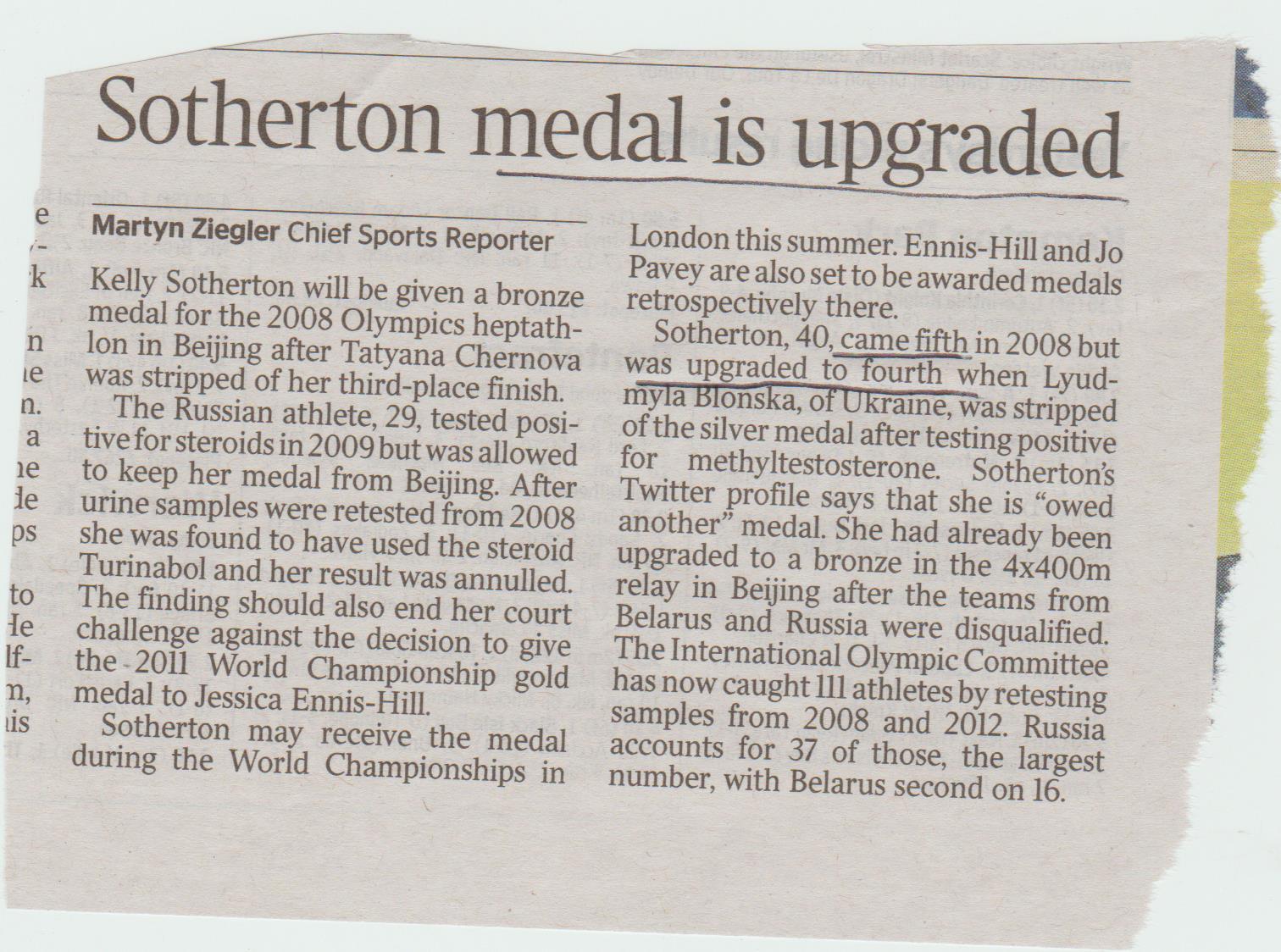 The Times, April 25, 2017
The Times, April 25, 2017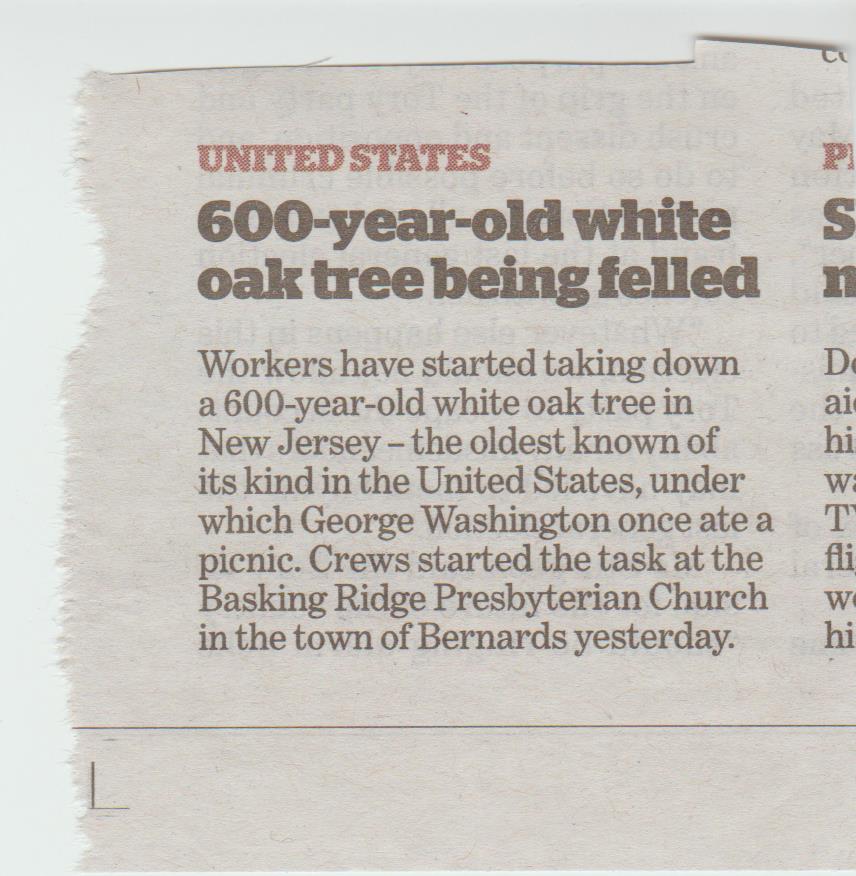 i newspaper, April 25, 2017
i newspaper, April 25, 2017 The Times, April 24, 2017
The Times, April 24, 2017 i newspaper, April 24, 2017
i newspaper, April 24, 2017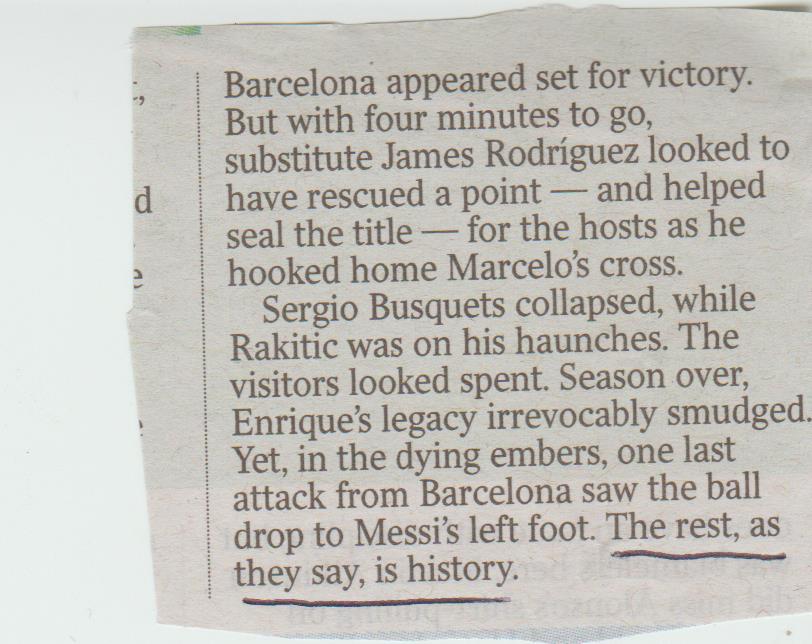 The Times, April 24, 2017
The Times, April 24, 2017 Daily Express, April 21, 2017
Daily Express, April 21, 2017 i newspaper, April 22, 2017
i newspaper, April 22, 2017 Some years ago Giles Coren was upset when a sub deleted the word ‘a’ from his Times restaurant column. His memo about it went viral in the subbing world. Here are a couple of extracts (please do not read if foul language offends you):
Some years ago Giles Coren was upset when a sub deleted the word ‘a’ from his Times restaurant column. His memo about it went viral in the subbing world. Here are a couple of extracts (please do not read if foul language offends you):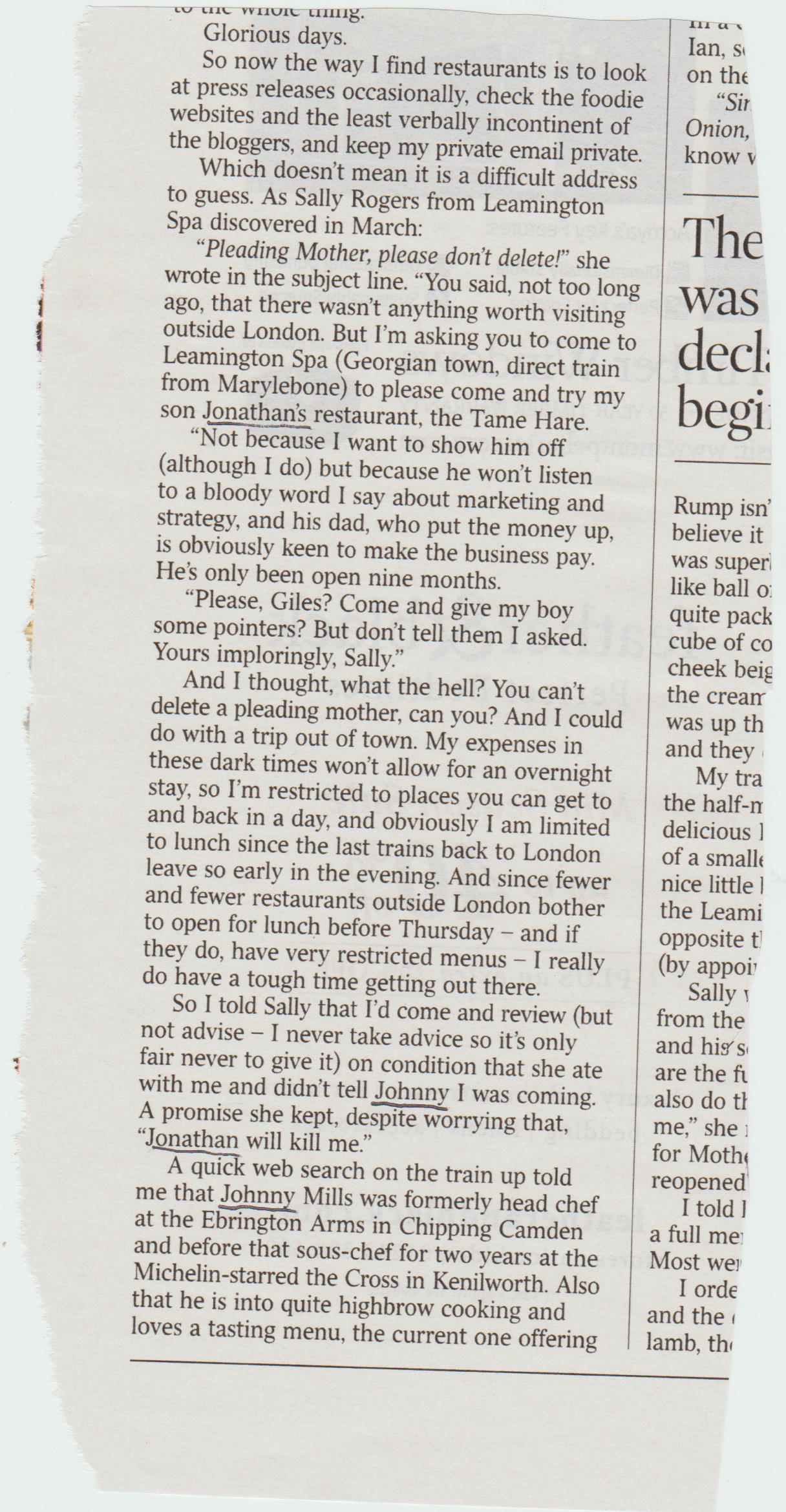 The Times, April 22, 2017
The Times, April 22, 2017